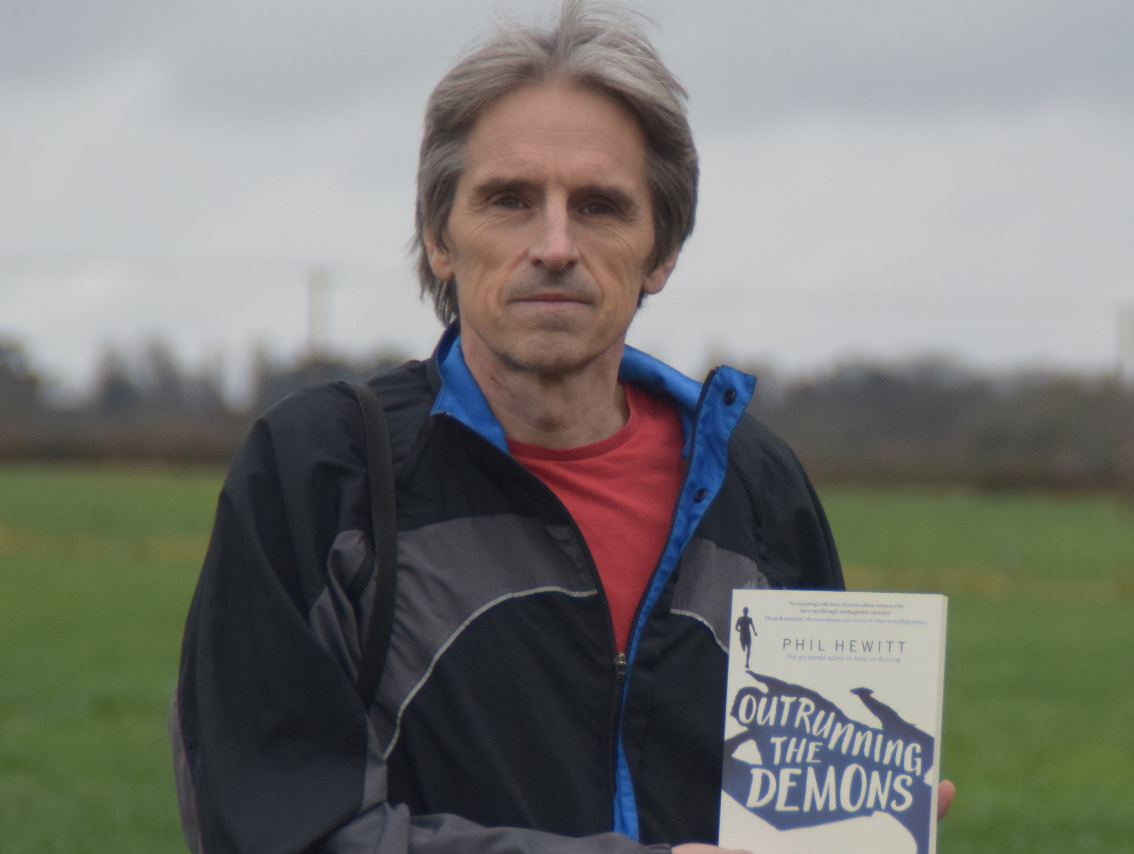
A journalist who was stabbed, beaten and left for dead on the side of a road in South Africa three years ago has written a book on running, which he described as his “therapy” from post-traumatic stress disorder.
Phil Hewitt, group arts editor at Sussex Newspapers, part of JPI Media, travelled to Cape Town to see the England cricket team play against South Africa on Valentine’s Day in 2016.
The 55-year-old was alone – his friend doesn’t share his passion for the sport – when he was mugged about 90 minutes after the game ended.
Hewitt was stabbed twice in the leg, repeatedly kicked in the chest, stomach and neck and left by the road, where he thought he was at serious risk of bleeding to death.
He was rescued by a passing delivery driver who picked him up, propped up his leg on some pizza boxes in the backseat of his car, and took him to hospital where he was given 15 stitches and told he had three broken ribs.
Hewitt, who has worked for Sussex Newspapers since 1990 when he joined the Chichester Observer as a junior reporter, told Press Gazette his saviour was “a fantastic human being”.
“He had the bravery to stop. It could have been an elaborate setup or a carjacking or something.
“He came to my aid and I’m sure I can say he saved my life. I think my chances of surviving would have been minimal if no one had stopped. I couldn’t stand, I couldn’t go and get help.”
Hewitt dived back into work as soon as he returned home, but just three weeks later had a panic attack in a shopping centre, making him realise he needed a plan to deal with his PTSD.
“In hindsight it probably would have been wiser to have a proper break just to process [what happened],” he said.
He decided to return to his “first love”, running, the very next day, even though his leg “really hurt”, and also resolved to write down every detail of his ordeal.
“The more I ran, the more I wrote and what I wrote started being about the healing effect of running,” he said.
Outrunning The Demons
Hewitt pitched a book about his story to publisher Bloomsbury, who suggested expanding it by speaking to others who had shared similar experiences.
His 34 interviewees, who he found by searching for people’s stories online and introducing himself as a fellow survivor of trauma first and a journalist second, included a 9/11 widow, a survivor of the Boston Marathon bombing, and others who suffered depression, addiction, alcoholism or bereavement.
Hewitt described them as “brilliant, warm, generous and supportive” and their collective stories became his book, Outrunning The Demons, which was published in the UK in January and in the US last week.
The book sandwiches these stories between Hewitt’s first marathon after the stabbing, his 31st overall, ending at the finishing line where “the emotion was simply overwhelming”, he said.
“Through the book I have spoken to some fantastic people who have been through some horrible things. I’ve learned amazing things through them.
“They understand what’s happened to them so I can understand what’s happened to me, so in a way that book is my therapy, my healing, and it’s an ongoing process for life. I always thought that we control our minds and with the stabbing, I understand we don’t – our minds control us.”
Hewitt still has PTSD but said running, writing his book and speaking to the other runners he featured had “helped hugely”.
“I’m not recovered and I’m not ever going to be recovered, but I feel I’m in an increasingly good place because that horrible thing is starting to feel like not the end point of something, but the starting point.”
Outrunning The Demons, published by Bloomsbury Sport, is out now.
Email pged@pressgazette.co.uk to point out mistakes, provide story tips or send in a letter for publication on our "Letters Page" blog
